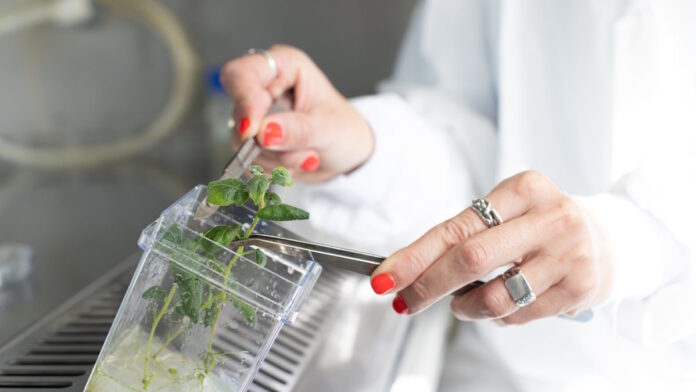Israeli molecular farming company PoLoPo has submitted an application for Regulatory Status Review (RSR) to the U.S. Department of Agriculture’s Animal and Plant Health Inspection Service.
This is the first step towards regulatory approval for its SuperAA platform, which turns the potato plant into a micro-biofactory derived from proprietary metabolic engineering techniques.
If granted, USDA approval will establish that PoLoPo’s platform poses no agricultural or pest risk compared to traditional potato growing. The company said it expects the approval within six months. It will enable PoLoPo to pursue its commercial plans to grow its transgenic potato plants in the U.S. through partners and local growers.
“This is an important milestone for molecular farming as well as for PoLoPo to establish safety and clearance to begin growing GMO plants,” said PoLoPo CEO, Maya Sapir-Mir.
“The production of ovalbumin in plants, not animals, will transform food processing with a price- and supply chain-stable option and set off a domino effect on sustainability, a big first step toward changing our food industry.”
PoLoPo said its platform presents an affordable alternative to an industry suffering from increased egg prices, supply chain instability, and avian flu outbreaks.
The potato plants manufacture the target proteins in the plant and store them in the tuber. Tubers are harvested when they reach sufficient size, then their proteins are extracted and dried into a powder that integrates into current food processing lines and formulations. While derived from genetically engineered plants, the resulting protein powder contains no genetic material and is considered non-GMO.
PoLoPo said its protein will soon be available to the food industry for testing.
The company was founded in 2022 and has raised $2.3 million from foodtech investors including FoodLabs, Milk & Honey Ventures, CPT Capital, Siddhi Capital, Plug and Play, and Hack Capital.
Jim Cornall is editor of Future Food Today and publisher at Ayr Coastal Media. He is an award-winning writer, editor, photographer, broadcaster, designer and author. Contact Jim here.






